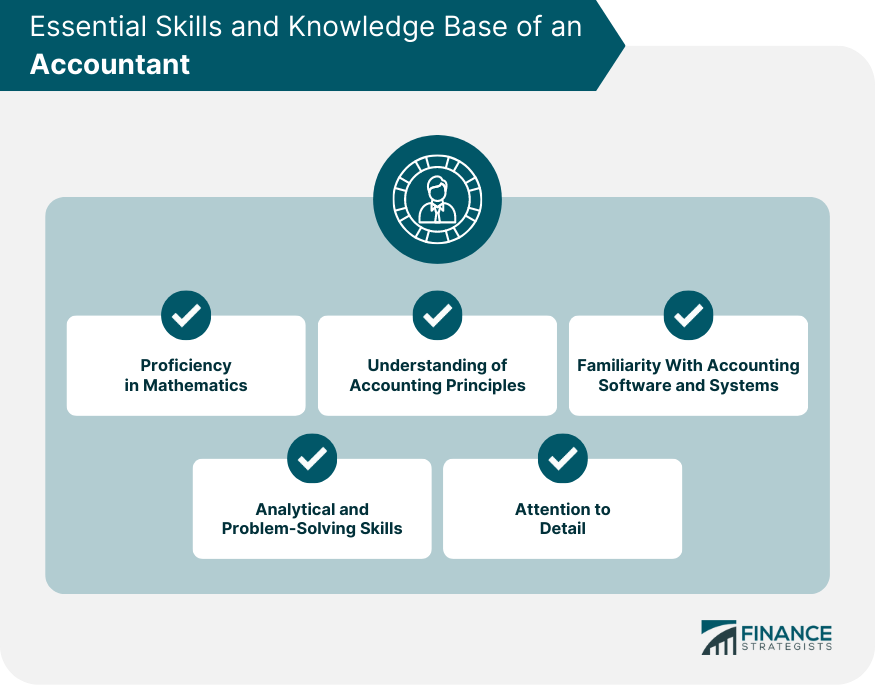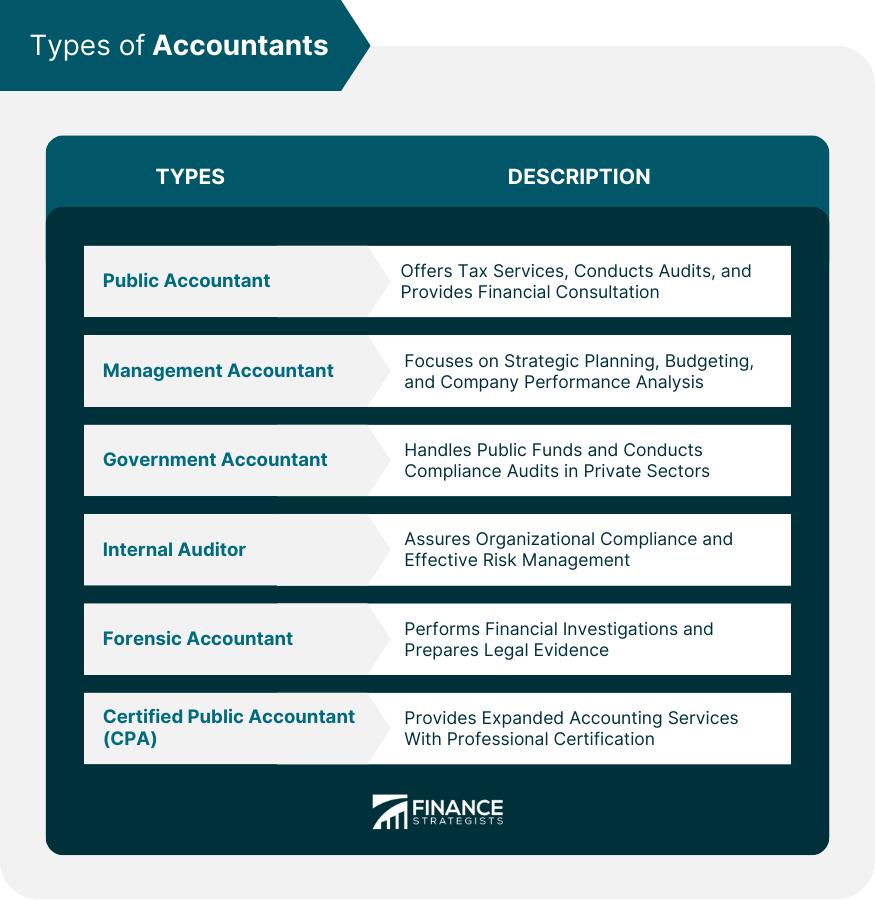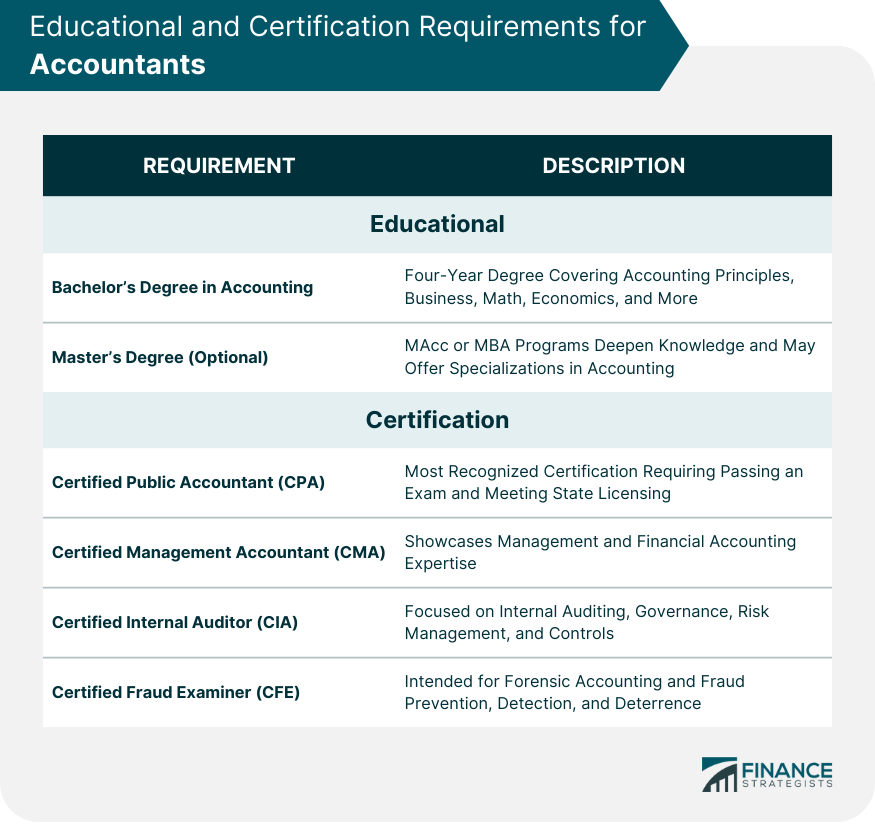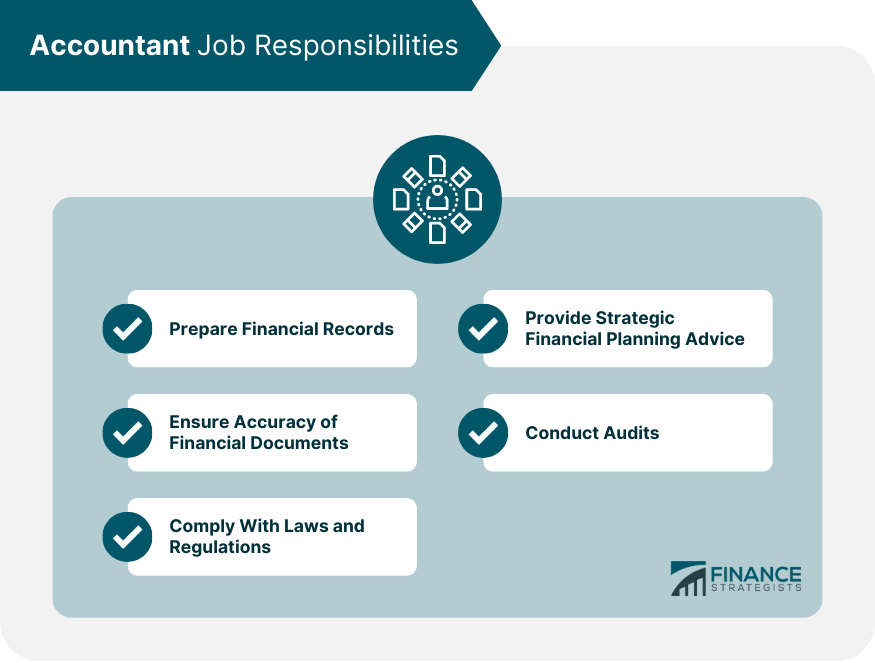An accountant is a professional responsible for keeping track of a company's financial transactions. Accountants use standardized guidelines to record, analyze, interpret, and present the financial operations of a business. This role is critical for organizations, from small start-ups to multinational corporations, and individuals who require assistance with their financial records. An accountant's role extends beyond mere number crunching. They are the custodians of a company's financial health, providing accurate information to key stakeholders. Their roles include budgeting, financial forecasting, cash management, and strategic planning. Additionally, they ensure compliance with financial regulations and can guide businesses to minimize their tax liabilities. Accounting, known as the "language of business," has a rich history across cultures. Ancient records from Mesopotamia, Egypt, Babylon, India, China, Greece, and Rome demonstrate its early development. Luca Pacioli, an Italian mathematician, made a significant contribution in 1494 with the first book on double-entry bookkeeping, earning him the title "the father of accounting and bookkeeping." Today, accounting has evolved with technology, becoming a regulated profession with standards and ethics, playing a crucial role in business operations. Mathematics is an essential tool for accountants, as their daily tasks often involve numerical computations, financial analysis, and statistical assessments. They must be comfortable with fundamental arithmetic for basic tasks, such as addition and subtraction, which are vital when preparing financial statements. In addition, they need a firm grasp of statistics to analyze data, understand economic trends, and make reliable predictions. An understanding of algebra is also necessary when dealing with complex formulas and equations. Proficiency in mathematics enables accountants to execute their tasks efficiently and accurately, ensuring that financial data is precise and reliable. Accountants require a comprehensive knowledge of financial and management accounting principles. Financial accounting focuses on providing information to external parties through financial statements, adhering to accounting standards. Management accounting, on the other hand, generates internal information for strategic decision-making, planning, and resource optimization. Understanding these principles enables accountants to effectively provide information to stakeholders and contribute strategically to organizational success. As technology advances, the role of accountants has evolved to incorporate various accounting software and information systems. Technology improves the efficiency, accuracy, and accessibility of financial information. Accountants should be familiar with software like QuickBooks for small business accounting, SAP for enterprise resource planning, and Oracle for database management. Additionally, Microsoft Excel remains a powerful tool for accountants for data analysis, financial modeling, and visualization. In-depth knowledge of these tools increases an accountant's productivity and reduces the risk of errors in financial reports. Accountants are often presented with complex financial data and scenarios that require robust analytical and problem-solving skills. They must analyze financial reports, interpret trends, and provide insight into an organization's financial status. Additionally, accountants need to identify and solve financial discrepancies that could impact the accuracy of financial reports or lead to regulatory issues. Problem-solving requires creativity, logical reasoning, and thinking under pressure. These skills are especially crucial during audits or financial investigations. In the world of accounting, a minor error can have significant consequences. Hence, accountants must demonstrate exceptional attention to detail. They are responsible for ensuring the accuracy of financial records, tax forms, and other related documents. Their work involves reviewing vast amounts of data and identifying any discrepancies, no matter how small. Moreover, accountants must know and comply with constantly changing financial regulations and laws. This aspect of their role requires meticulous review and understanding of complex legal texts. With precise attention to detail, accountants maintain the integrity of an organization's financial information and contribute to its compliance with legal and regulatory obligations. Public accountants are certified professionals who serve a broad range of clients, including individuals, corporations, and government entities. Their role often includes offering financial consulting and planning services, conducting audits, and preparing taxes. They may work independently in a small firm or a large public accounting company. Many public accountants specialize in one area, such as tax consulting or forensic auditing. Their varied clientele exposes them to various industries and financial situations, making this a dynamic field within accounting. Management accountants, often called corporate or private accountants, operate within a single company. Their primary role involves preparing detailed reports and forecasts for managers within the organization. They analyze the cost of business operations, contribute to budget planning, perform risk management, and assist in strategic decision-making processes. Management accountants play a crucial role in improving operational efficiency, reducing costs, and driving the overall financial performance of a company. Government accountants are employed in various government agencies, from local to federal levels. Their responsibilities are two-fold. Internally, they manage and examine the agency's financial records, ensuring accuracy and transparency in the use of public funds. Externally, they audit private businesses and individuals for compliance with governmental regulations and taxation laws. They play a significant role in maintaining financial accountability in both the public and private sectors. Internal auditors are an organization's independent and objective body to review its financial and operational activities. Their role is to assess the effectiveness of internal controls, identify potential waste or fraud, and ensure compliance with laws and regulations. They evaluate risk management plans and internal processes to protect the organization's assets and maximize efficiency. Unlike external auditors, who focus on financial statement accuracy, internal auditors look at the broader picture of an organization's activities and systems. Forensic accountants combine their accounting knowledge with investigative skills to analyze financial information and gather evidence for legal proceedings. They often work on cases involving financial fraud, embezzlement, money laundering, or bankruptcy. Besides investigating and documenting financial discrepancies, forensic accountants may also provide litigation support, serving as expert witnesses in court trials. Their work is crucial for resolving disputes and enforcing accountability in financial transactions. A Certified Public Accountant (CPA) is an accountant who has passed the rigorous CPA exam and fulfilled specific work experience requirements. The CPA designation is prestigious and often associated with a higher level of competency in accounting. CPAs can perform several tasks that a non-CPA accountant cannot, such as auditing public companies or signing a client's tax return as a paid preparer. CPAs work in various sectors, including public accounting, corporate accounting, governmental accounting, and non-profit organizations. A bachelor's degree is the most common requirement to start a career in accounting. This four-year degree typically includes business, mathematics, economics, and specialized accounting courses. These specialized courses often cover tax law, auditing, cost accounting, and financial reporting. This foundational education equips aspiring accountants with a comprehensive understanding of how financial information is collected, recorded, and analyzed in business settings. While not mandatory, some accountants pursue a master's degree to advance their careers. A Master's in Accounting (MAcc) deepens the knowledge gained at the undergraduate level and may provide a specialization, such as tax accounting or auditing. On the other hand, a Master of Business Administration (MBA) focusing on accounting offers broader business knowledge alongside a deeper understanding of accounting practices. These advanced degrees can make an accountant more competitive in the job market and lead to higher-level positions. The CPA certification, administered by the American Institute of Certified Public Accountants (AICPA), is the most recognized credential in the accounting field. This certification involves passing a comprehensive exam and meeting specific state licensing requirements, often including work experience. CPAs can perform tasks that uncertified accountants can't, such as signing audit reports or filing reports with the Securities and Exchange Commission (SEC). The CMA certification offered by the Institute of Management Accountants (IMA), demonstrates strategic management and financial accounting expertise. Ideal for accountants working in corporate settings, the CMA certification is recognized globally and requires passing a two-part exam and having relevant work experience. The CIA certification, provided by the Institute of Internal Auditors (IIA), is specific to accountants working in internal auditing. It signifies competency in governance, risk management, and internal control. This certification requires passing a three-part exam and meeting certain education and work experience requirements. Offered by the Association of Certified Fraud Examiners (ACFE), the CFE certification is geared toward accountants interested in forensic accounting. CFEs specialize in fraud prevention, detection, and deterrence. This certification requires passing an exam and having relevant professional experience. The finance and accounting world continually evolves, making lifelong learning essential. Accountants must stay current with tax laws, financial regulations, and accounting software changes. Accountants are crucial in preparing and maintaining a company's financial records. This involves documenting all business transactions, such as sales, purchases, and expenditures. Accountants must be thorough and meticulous in their record-keeping to ensure that all financial data is accurate, up-to-date, and aligned with accounting standards. A key part of an accountant's job is to verify the accuracy of all financial documents and records. They cross-check data, identify and correct discrepancies, and reconcile any differences. This accuracy is vital for preventing financial errors that could lead to potential legal issues or financial losses. Accountants are responsible for ensuring their organization or clients' compliance with all relevant financial laws and regulations. This includes staying updated with changes in tax laws and financial regulations. Non-compliance can result in penalties or legal repercussions. Accountants may also assist with tax filings and ensure that these are done correctly and on time. By analyzing financial data, accountants can identify trends, potential risks, and opportunities. They use this information to advise management on financial decisions, including cost reduction, revenue enhancement, and profitability improvement strategies. In this capacity, accountants serve as crucial advisors for an organization's strategic planning. Auditing is a significant function for many accountants. Internal auditors examine an organization's financial records to ensure they are accurate and compliant with laws and standards. They may also assess the effectiveness of the organization's internal controls and risk management practices. External auditors, often CPAs, perform similar tasks for clients, especially concerning compliance for publicly traded companies. This function builds trust among stakeholders and verifies the integrity of the financial data reported by the organization. Ethics in accounting is of utmost importance as it directly affects the trust of stakeholders, including investors, employees, and the public. As accountants handle sensitive financial information, they must act with honesty, transparency, and integrity. This ensures that financial records are not only accurate but also presented in a manner that is fair and not misleading. Any manipulation or deceit can lead to false perceptions about a company's financial health, thereby affecting decision-making processes at various levels. The consequences of unethical behavior in accounting can be severe and far-reaching. At the organizational level, corrupt practices can lead to financial loss, reputational damage, and even bankruptcy. For individuals involved, consequences may include job loss, fines, and potential legal ramifications. High-profile accounting fraud cases, such as those at Enron and WorldCom, highlight the devastating impact that unethical behavior can have on companies and their stakeholders. In these cases, manipulated accounting practices led to inflated stock prices, followed by bankruptcy, employee layoffs, and loss of investor trust. Professional accounting bodies, such as the American Institute of Certified Public Accountants (AICPA), have established codes of professional conduct to guide accountants on ethical behavior. These codes cover various areas, including objectivity, integrity, confidentiality, and professional behavior. By adhering to these ethical guidelines, accountants are committed to professional responsibility. They ensure their work's credibility and contribute to the public's trust in the accounting profession. Failure to abide by these codes can lead to disciplinary action by professional bodies, including suspension or revocation of professional licenses or certifications. Accountants play a vital role in businesses by keeping track of financial transactions, providing accurate information to stakeholders, and ensuring compliance with financial regulations. They require essential skills such as proficiency in mathematics, understanding of accounting principles, familiarity with accounting software, analytical and problem-solving abilities, and attention to detail. Different types of accountants, including public accountants, management accountants, government accountants, internal auditors, and forensic accountants, have specific responsibilities tailored to their respective fields. Accountants need a bachelor's degree in accounting, optional master's degrees, and certifications such as Certified Public Accountant (CPA), Certified Management Accountant (CMA), Certified Internal Auditor (CIA), and Certified Fraud Examiner (CFE). Upholding ethical conduct is crucial in accounting, as it impacts trust, organizational integrity, and stakeholder confidence. Adherence to professional ethics codes ensures credibility and fosters trust in the accounting profession while avoiding severe consequences associated with unethical behavior.What Is an Accountant?
Brief History of Accounting
Essential Skills and Knowledge Base of an Accountant
Proficiency in Mathematics
Understanding of Financial and Management Accounting Principles
Familiarity With Accounting Software and Information Systems
Analytical and Problem-Solving Skills
Attention to Detail

Types of Accountants
Public Accountant
Management Accountant
Government Accountant
Internal Auditor
Forensic Accountant
Certified Public Accountant (CPA)

Educational and Certification Requirements for Accountants
Bachelor’s Degree in Accounting or a Related Field
Master’s Degree in Accounting or Business Administration (Optional)
Certifications
Certified Public Accountant (CPA)
Certified Management Accountant (CMA)
Certified Internal Auditor (CIA)
Certified Fraud Examiner (CFE)
Continuing Education and Lifelong Learning

Accountant Job Responsibilities
Preparing Financial Records
Ensuring Accuracy of Financial Documents
Complying With Laws and Regulations
Providing Strategic Financial Planning Advice
Conducting Audits

Ethical Considerations in Accounting
Importance of Ethics
Consequences of Unethical Behavior
Professional Ethics Codes
Conclusion
Accountant FAQs
On a typical day, an accountant may prepare financial statements, analyze data, review and maintain reports, advise on tax planning, conduct audits, and ensure compliance with financial regulations.
Becoming a certified accountant generally requires at least a bachelor's degree, which usually takes four years. After that, certification, such as the CPA, may require additional study and passing the relevant examination.
While accountants and CPAs handle financial transactions, a CPA has passed a rigorous examination and met specific work experience requirements. CPAs can perform additional tasks that an accountant without the CPA designation cannot, such as signing audit reports.
Ethical considerations are crucial because accountants deal with sensitive financial information. Unethical behavior can result in severe consequences, including loss of professional certification, legal penalties, and damage to a company's reputation.
The career outlook for accountants is generally strong. With businesses and individuals always needing financial advice and assistance, accountants are in high demand across various industries and sectors. Emerging fields such as forensic accounting and financial technology also provide exciting new opportunities.
True Tamplin is a published author, public speaker, CEO of UpDigital, and founder of Finance Strategists.
True is a Certified Educator in Personal Finance (CEPF®), author of The Handy Financial Ratios Guide, a member of the Society for Advancing Business Editing and Writing, contributes to his financial education site, Finance Strategists, and has spoken to various financial communities such as the CFA Institute, as well as university students like his Alma mater, Biola University, where he received a bachelor of science in business and data analytics.
To learn more about True, visit his personal website or view his author profiles on Amazon, Nasdaq and Forbes.











